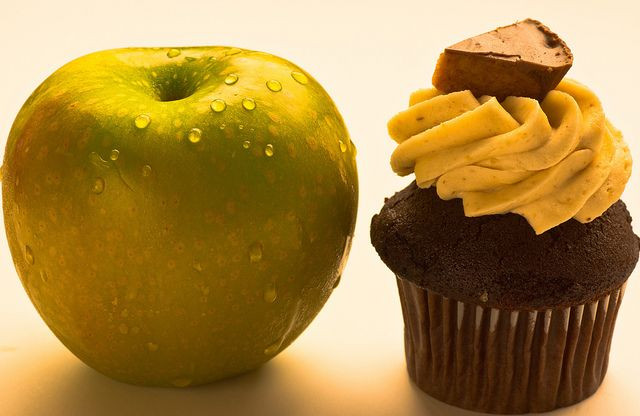Stress Reduces Self-Control, Making Instant Gratification Seem That Much More Appealing

Instant gratification is exactly that — immediate reward (pleasure!) minus any real work. A new study from University of Zurich investigates the unique relationship between pressure and gratification. Stress, a team of neuroscientists discovered, wrecks your decision-making abilities by increasing the attraction of immediately rewarding qualities while also reducing your self-control.
Many important decisions are made under high pressure conditions and though most of us are inclined to believe too much stress compromises behavior, it’s unclear to us how that happens. Past research, cited in the current study, suggests stress may affect our human choices in at least two ways. Stress impairs our prefrontal brain functions, which are fundamental to both self-control and control of goal-based actions, some research suggests. Meanwhile, past studies also indicated stress amplifies our cravings and so influences us to choose whatever option appears immediately rewarding.
Does stress truly cause either (or both) of these effects? A team of neuroscientists led by Silvia Maier, a doctoral student working in University of Zurich's laboratory for social and neural systems research, decided to investigate.
Healthy vs. Unhealthy Food
The experiment began with a simple, though strange task: 29 of the volunteers immersed one hand into an ice water bath for three minutes under the watchful gaze of the researchers. As you may imagine, this brief task induces moderate stress. Next, these 29 volunteers were asked to choose between two food options: one, a very tasty but unhealthy treat and the other, a healthy less appetizing item. After this, the researchers requested another 22 volunteers make a choice between the same two food options, except these lucky souls did not first perform the ice bath task.
Importantly, all 51 volunteers, who were monitored by an MRI while making their food choices, had described themselves as making an effort to maintain a healthy lifestyle. So, what did the researchers discover?
The participants who had experienced the ice bath stress test were more likely to select instant gratification — the unhealthy food option — compared with those who had not undergone the stress test.
The effects of stress also appeared on their brain scans. Stressed participants' scans showed changed patterns of connection between various brain regions, such as the amygdala, the striatum, and the dorsolateral and ventromedial prefrontal cortex. This obvious “disconnection” apparently reduced their ability to exercise self-control when making a simple food choice.
Pointing out they had only barely stressed-out their participants, the researchers say the results of this study indicate even low-levels of stress impact our self-control. Naturally, too, some participants responded more dramatically to stress than others. Maier and her colleagues say, going forward, they want to figure out why some people are more resilient than others.
Source: Maier SU, Makwana AB, Hare TA. Acute Stress Impairs Self-Control in Goal-Directed Choice by Altering Multiple Functional Connections within the Brain's Decision Circuits. Neuron. 2015.



























